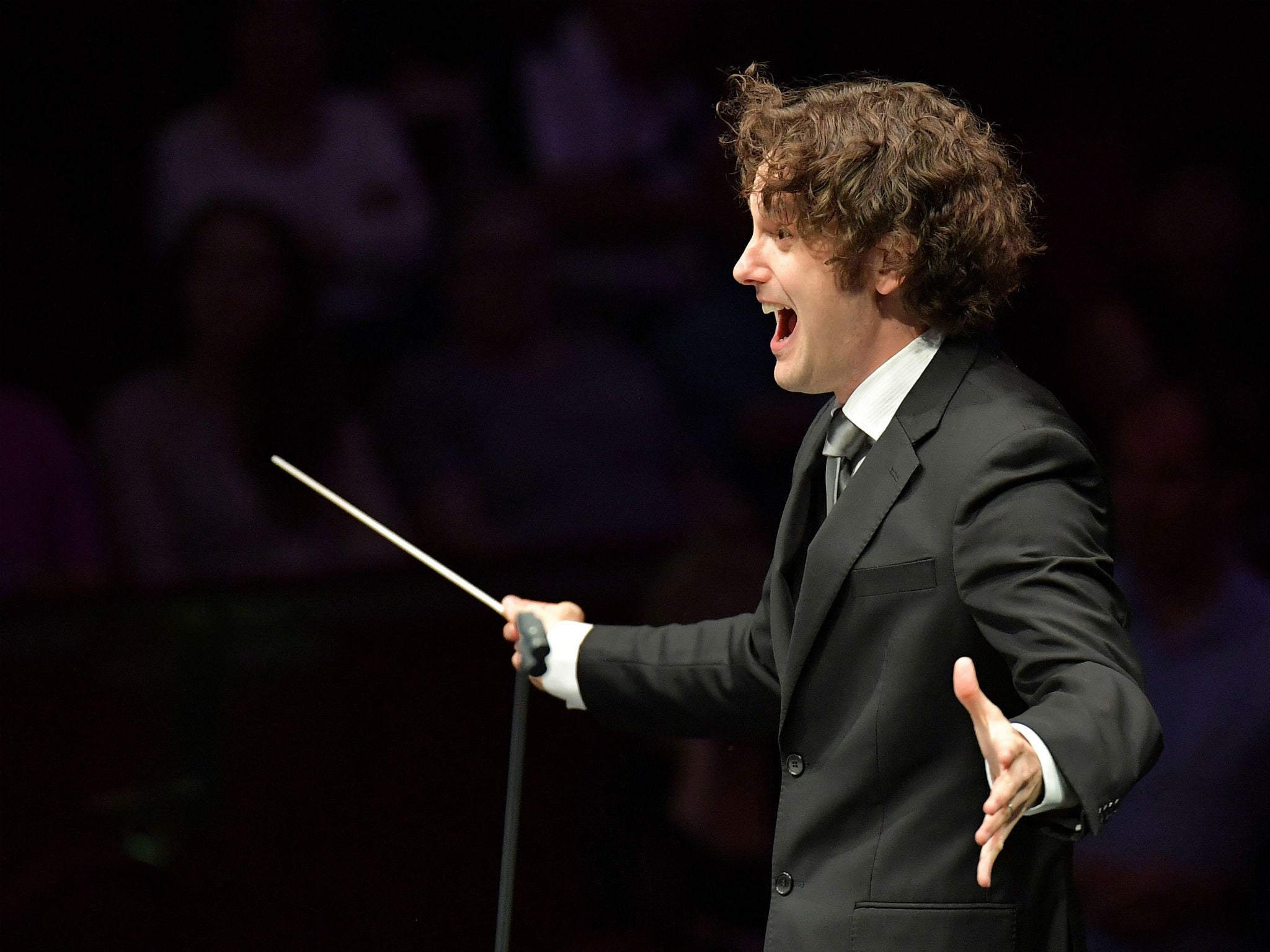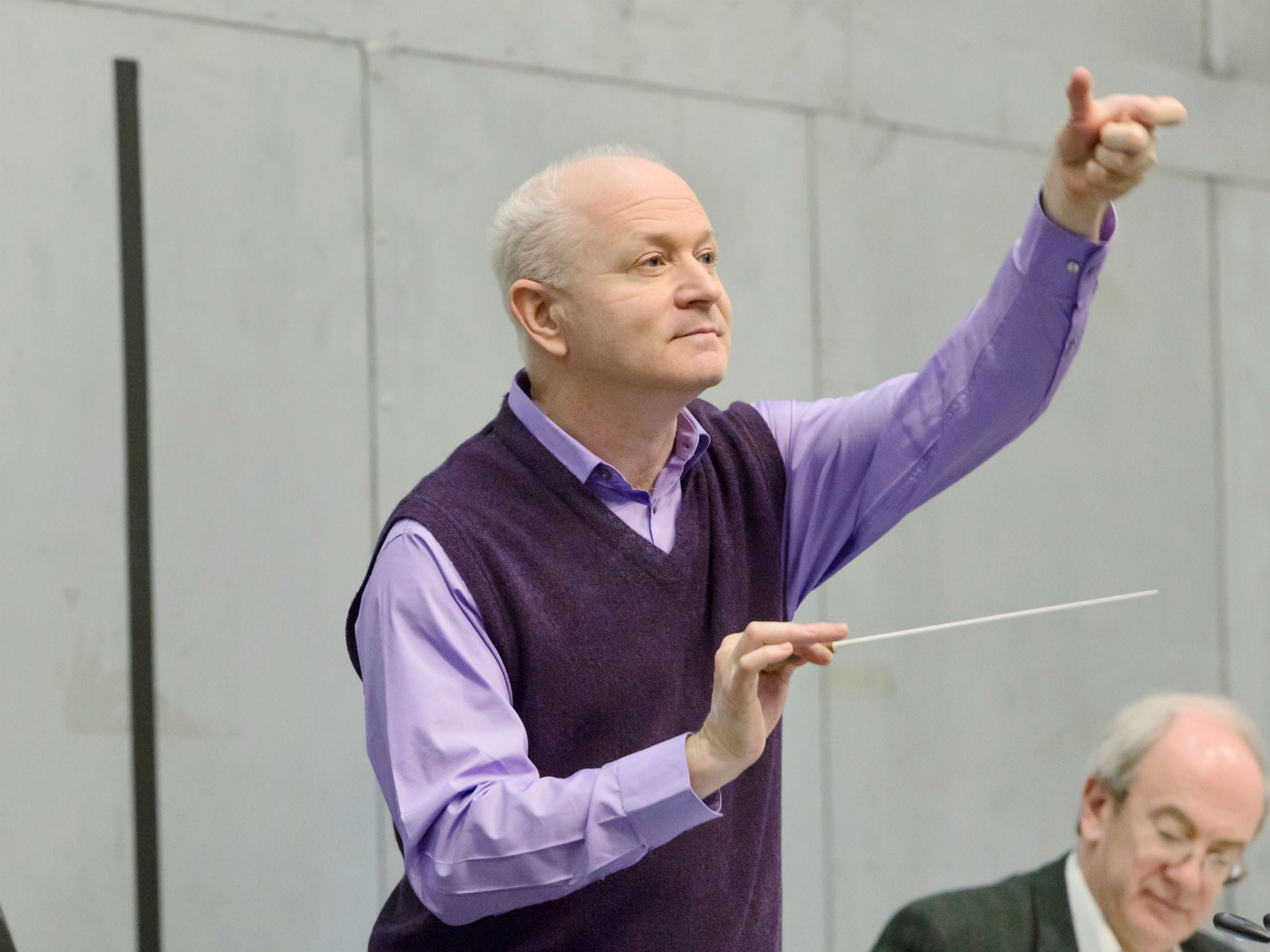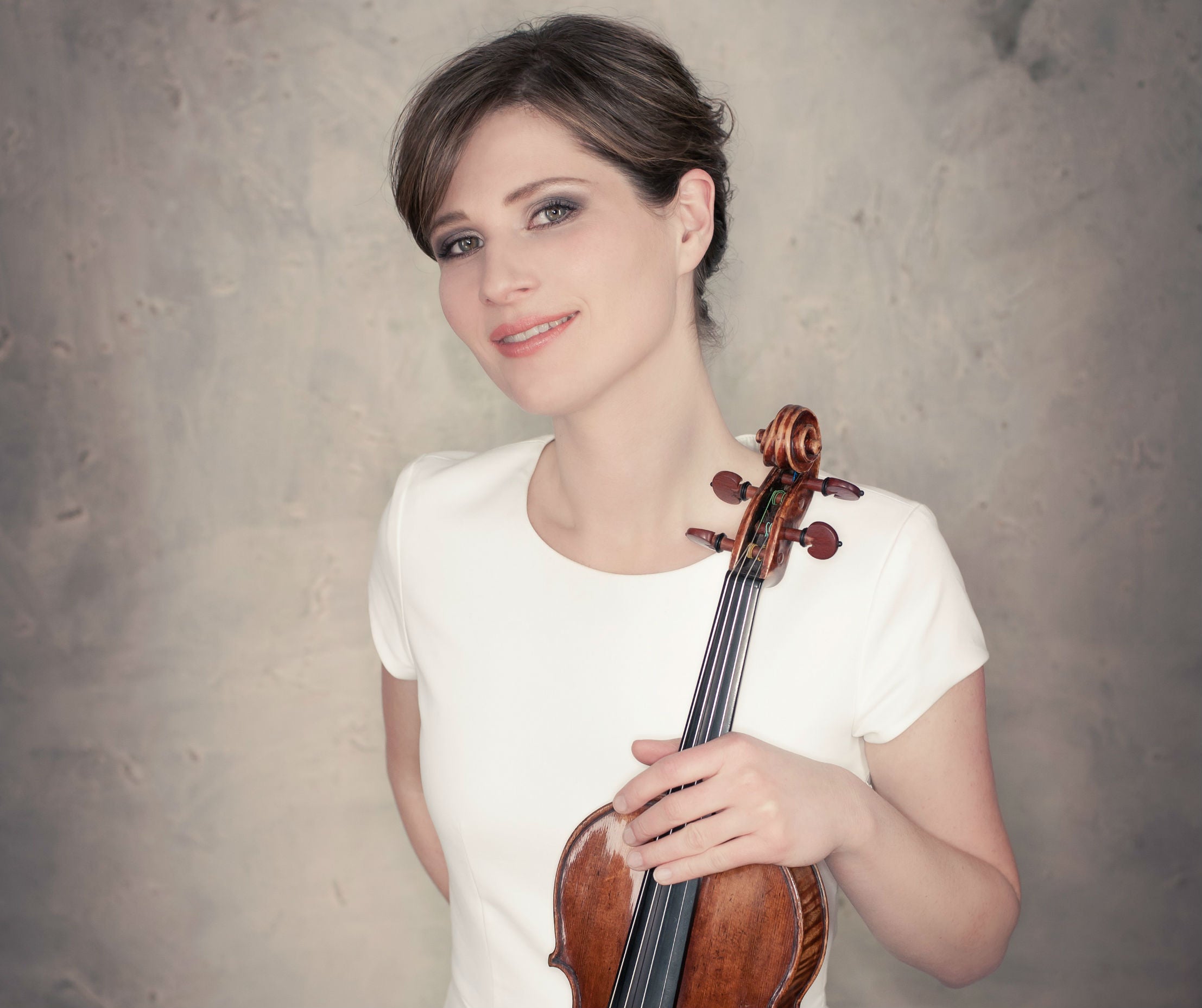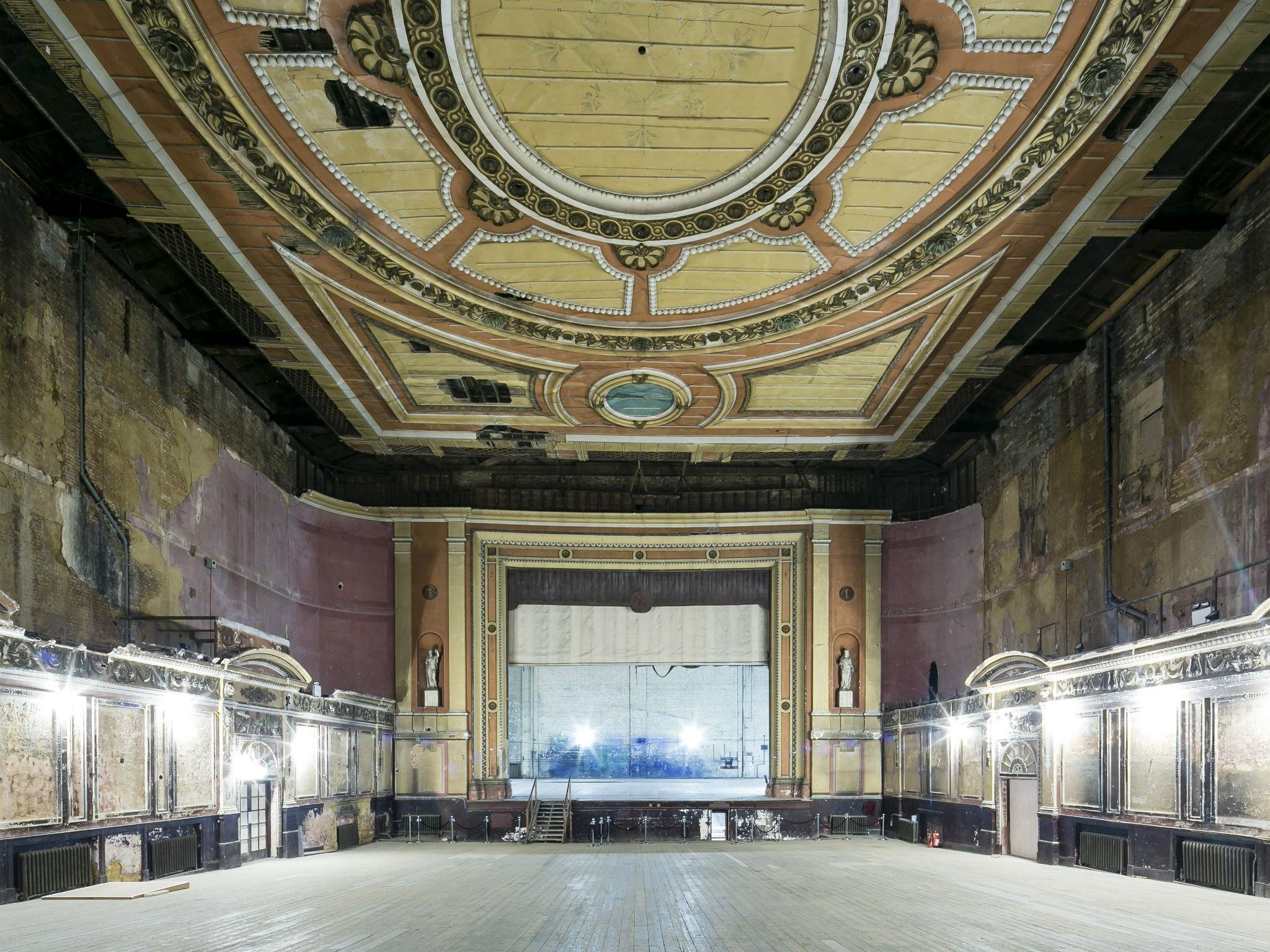From Anna Meredith to Mark-Anthony Turnage, Israeli-Arab youth orchestras to late-night Bach – these are the most exciting Proms
While the core classical menu is dependable as ever, there's also plenty of imaginative programming by the BBC this year

Your support helps us to tell the story
From reproductive rights to climate change to Big Tech, The Independent is on the ground when the story is developing. Whether it's investigating the financials of Elon Musk's pro-Trump PAC or producing our latest documentary, 'The A Word', which shines a light on the American women fighting for reproductive rights, we know how important it is to parse out the facts from the messaging.
At such a critical moment in US history, we need reporters on the ground. Your donation allows us to keep sending journalists to speak to both sides of the story.
The Independent is trusted by Americans across the entire political spectrum. And unlike many other quality news outlets, we choose not to lock Americans out of our reporting and analysis with paywalls. We believe quality journalism should be available to everyone, paid for by those who can afford it.
Your support makes all the difference.Pity the poor Proms 2018 director. Who would have expected that the long arm of political correctness would scupper his casting for the role of Maria in West Side Story, on the grounds that the singer in question – Sierra Boggess – was not from a Latino background? The BBC is still desperately searching for an ethnically suitable replacement.
As has been widely observed, this principle, if logically applied, could result in even more problematic demands: a Jewish cast for Bach’s Matthew Passion, a mostly Japanese one for Madama Butterfly…
But in terms of PC requirements in other areas, the Proms this year are squeaky-clean. The number of women composers represented is higher than ever before, with each of the Cadogan Hall concerts containing a world premiere by a woman who has not previously been commissioned by the BBC.
This year the Proms will branch out to new venues, and the musical palette has never been wider. We’ll get a tango Prom, a Hungarian Gypsy Prom, a British folk music Prom, a late concert purveying sounds from the streets of New York, and a celebration, headed by Youssou N'Dour, of the starriest music from the Senegalese capital, Dakar.
The BBC’s expressed intention of embracing the classical musics of other cultures is still proceeding cautiously, with this year a lunchtime concert by the oud virtuoso Joseph Tawadros, who will improvise in the traditional Cairene manner as well as performing a new composition for his instrument.
We’ll also get a ‘Relaxed Prom’ – following in the tradition established by the BBC’s ‘slow radio’, and featuring the disabled-led BSO Resound ensemble. There will even be a broadcast Prom whose ‘binaural audio stream’ will, we are promised, enable listeners to experience it ‘as if they were present in the hall’. A mixed blessing? The Royal Albert Hall’s problematic acoustic means that nobody present can get an aural experience as perfectly balanced as that available to anyone listening at home.
Meanwhile the core classical menu is as dependable as ever; this year’s special emphasis on the music of Leonard Bernstein, whose centenary is being marked, is resulting in a particularly strong strand. Talking of whom, it’s worth remembering that Bernstein himself wasn’t bothered about the ethnicity of his Maria…
The ten most interesting
Prom 1: This First Night will commemorate the end of the First World War with two works composed as a response to it – Vaughan Williams’s Toward the Unknown Region, and Holst’s The Planets – and also with a new work by Anna Meredith/59 Productions entitled Five Telegrams, which will draw on letters sent home by young soldiers from the Front.

Prom 25: The excellent Finchley Children’s Music Group will join in presenting the Nutcracker Suite under Alexander Vedernikov’s baton, but the USP of this concert will be the guitarist Milos Karadaglic playing a new work composed for him by Joby Talbot, in which music from Milos’s Montenegrin heritage will be woven in. No other guitarist can match his graceful blend of personal charisma and technical finesse.
Prom 28: With George Benjamin on the podium, this concert will blend the popular and the arcane in a coruscating way. The Mussorgsky-Rimsky Night on a Bare Mountain will be followed by Ligeti’s Lontano and Debussy’s La mer, but Ravel’s extraordinary Piano Concerto for the Left Hand, written for the war-wounded Paul Wittgenstein and played here by Tamara Stefanovich, should blow the mind.

Proms 29/30: A fascinating experiment. The Swedish Chamber Orchestra will play twelve works – Bach’s six Brandenburg Concertos, plus new pieces to partner them which have been commissioned from six composers. The British composer Mark-Anthony Turnage, who has written one of these, has fixed on a cello-based response; one can only guess at what the American jazz composer Uri Caine will do.
Prom 32: The Aurora Orchestra is one of the most interesting young ensembles in the business, thanks to its excellence, and to its party trick of performing entire symphonies from memory. This is harder than it might seem, given that many instrumental parts consist of long periods of silence. Before they give Shostakovich’s Ninth this treatment, the superb Russian pianist Denis Kozhukhin will be soloist in the same composer’s second piano concerto.

Prom 43: No season is complete without a visit by Daniel Barenboim and his West-Eastern Divan Orchestra, in which young musicians from both sides of the Israeli-Arab divide harmoniously play together. This time, in addition to Scriabin’s The Poem of Ecstasy and Brahms’s Violin Concerto with Lisa Batiashvili as the soloist, they are bringing a new work entitled Looking for Palestine, which reflects their political identity.
Prom 46: In this all-American concert by the National Youth Jazz Orchestra, Bernstein’s music will loom large, but the centrepiece will be Gershwin’s Rhapsody in Blue with Benjamin Grosvenor as the soloist. This British pianist is the brightest of his generation: still only 25, he has carved a niche for himself both as a supremely accomplished interpreter of Beethoven and Chopin, and as a jazz musician. He will also be heard in Prom 56, playing Mozart.
Prom 62: Once a year the Royal Albert Hall is held in thrall by a solo piano recital by Sir Andras Schiff: this time he will complete the work he began last year, playing the second book of Bach’s The Well-Tempered Clavier. Schiff’s late-night Bach performances cast a very particular spell in this vast space: while always keeping the intricate music’s architecture firmly in view, he also infuses it with intense drama.

Prom at… Alexandra Palace: People don’t usually think of this ramshackle Victorian pile in terms of theatre, but, designed in 1873 as a People’s Palace, it had a superb theatre which housed the original Gilbert and Sullivan Trial by Jury. The theatre has been dormant throughout the intervening century and a half, and a new production of that operetta should awaken the auditorium like a sleeping beauty.
Prom 66: The Berliner Philharmoniker reflects its long and distinguished history in its playing, and in this first of two concerts it will deliver Franz Schmidt’s Mahlerian Symphony No 4. The other USP of this Prom will be the presence of the Chinese pianist Yuja Wang as soloist in Prokofiev’s Piano Concerto No 3. Yuja’s stage presence is always arresting, but so is her playing – when she’s on form, her virtuosity can take the breath away.
The Proms take place from 13 July to 8 September (bbc.co.uk/events)
Subscribe to Independent Premium to bookmark this article
Want to bookmark your favourite articles and stories to read or reference later? Start your Independent Premium subscription today.
Join our commenting forum
Join thought-provoking conversations, follow other Independent readers and see their replies
Comments